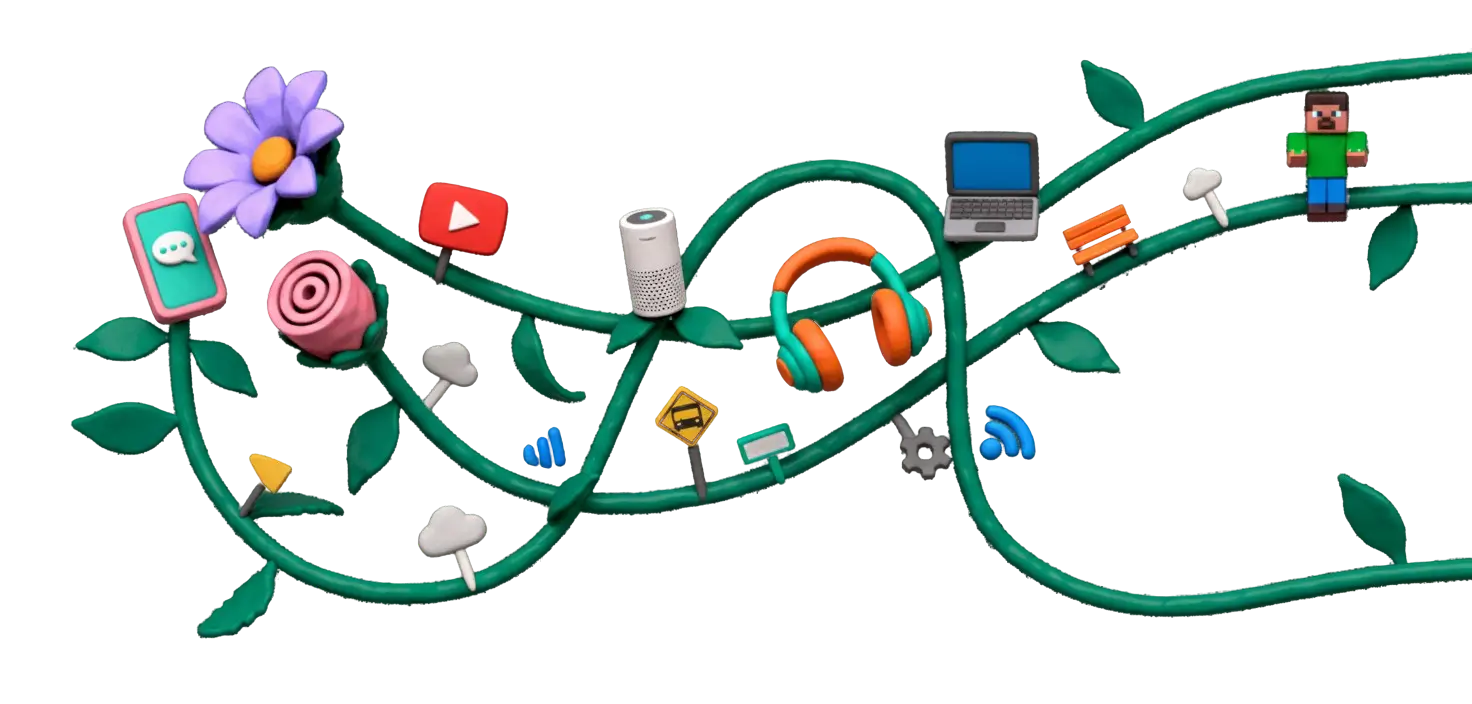
Character.AI & chatbot relationships — when to worry (2025)
Your child is texting an AI "friend" for hours. They say it "understands them better than anyone."AI companions are the new digital phenomenon—and they're raising questions parents never expected to face. Here's what you need to know.
What is Character.AI and why are kids drawn to it?
Character.AI is an app where users chat with AI-powered characters—fictional people, celebrities, historical figures, or custom-created personas. The AI responds like a human, remembers conversations, and adapts to your personality. For lonely or anxious kids, it can feel like a safe, judgment-free friend.
Why kids love it:
- Available 24/7 (no waiting, no rejection)
- Never judges or criticizes
- Remembers everything they say
- Can roleplay favorite characters (anime, games)
- Feels "safe" to share feelings with
- No social anxiety or pressure
Common use cases:
- Venting about school/friend drama
- Roleplaying fictional scenarios
- Practicing conversations (social skills)
- Seeking advice or emotional support
- Simulated romantic relationships
- Escapism from real-life problems
The appeal for struggling kids:
For kids dealing with social anxiety, bullying, loneliness, or neurodivergence, AI chatbots can feel like a lifeline. They provide connection without the complexity of human relationships. But that safety can also become a trap.
When AI companions are helpful vs. concerning
✅ Potentially helpful:
- Practicing social skills: Rehearsing conversations before real interactions
- Processing emotions: Venting safely without judgment
- Creative exploration: Roleplay for storytelling or fun
- Temporary comfort: Support during a tough day
- Supplementing (not replacing) real connections
🚨 Red flags (concerning):
- Replaces human friendships: Prefers AI over real people
- Hours daily on the app: Spending more time with AI than anything else
- Emotional dependence: "My AI is my only friend"
- Romantic/sexual conversations: Simulated relationships
- Withdrawal from real life: Skips activities to chat with AI
- Distorted reality: Forgets the AI isn't real or capable of real care
The "parasocial AI relationship" problem:
Just like parasocial relationships with celebrities or influencers, AI chatbots create one-sided emotional bonds. Your child feels connected, but the AI doesn't actually care—it's code responding to prompts. Over time, this can:
- Make real relationships feel "too hard" or disappointing
- Prevent development of conflict resolution skills
- Create unrealistic expectations for human connection
- Worsen loneliness instead of alleviating it
What parents should do
1. Don't panic or shame
If you discover your child is using Character.AI, don't immediately ban it or mock them. They're likely using it because they're struggling with something—loneliness, anxiety, social rejection. Start with curiosity, not judgment.
2. Have an open conversation
"I noticed you've been using Character.AI a lot. Can you tell me about it?"
"What do you like about talking to the AI?"
"Does it feel different from talking to real people? How?"
"Do you ever feel like the AI understands you better than people do?"
3. Set boundaries
- Time limits: 30-60 min/day max (treat it like social media)
- No replacement for real connection: "AI is for fun or practice, not your primary social life"
- Check in regularly: "Show me what kinds of conversations you're having"
- No romantic/sexual content: (Character.AI has filters, but they're imperfect)
4. Address the underlying need
If your child is spending hours with AI because they're lonely, anxious, or socially struggling, the AI is a symptom, not the problem. Focus on:
- Helping them build real friendships (clubs, activities, therapy)
- Teaching social skills if they're struggling
- Addressing anxiety or depression with professional help
- Creating opportunities for IRL connection
When to seek professional help:
- Your child says the AI is their "only friend" or "best friend"
- They're spending 3+ hours/day on chatbots
- They've stopped engaging in real-life activities
- They express romantic feelings for the AI
- They seem detached from reality or depressed
Teaching critical thinking about AI relationships
Conversation starter 1:
"The AI feels like it cares about you, right? But here's the thing—it's programmed to respond in ways that keep you chatting. It's not actually capable of caring. That doesn't make your feelings fake, but it's important to remember what it is."
Conversation starter 2:
"What's something the AI can't do that a real friend can?" (Challenge them to think about reciprocity, shared experiences, growth)
Conversation starter 3:
"AI is great for practice or comfort—but real relationships are where growth happens. Real people challenge you, disappoint you, and make you better. That's not comfortable, but it's how we learn to be human."
Final thought: AI can't replace human connection
AI companions are here to stay—and they'll only get more sophisticated. Your child's generation will navigate relationships with AI in ways we never imagined. Your job isn't to eliminate AI from their lives—it's to teach them what it can and can't replace.
AI chatbots can provide comfort, but they can't provide growth. They can't challenge you, surprise you, or truly know you. Real connection—messy, hard, imperfect—is what makes us human.
Action steps for this week:
- Ask your child if they use Character.AI or similar apps
- Have a curious (not judgmental) conversation about what they like about it
- Set time limits if usage is excessive
- Address any underlying social/emotional needs
- Teach the difference between AI comfort and real connection
You're helping them navigate a brand-new world. That takes courage and empathy.